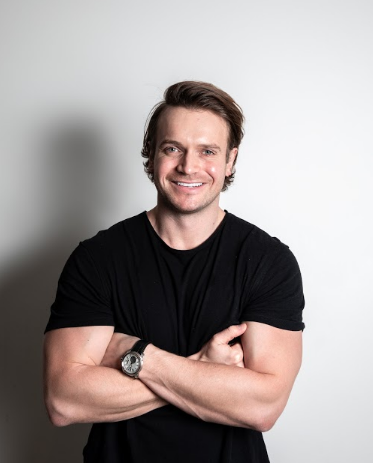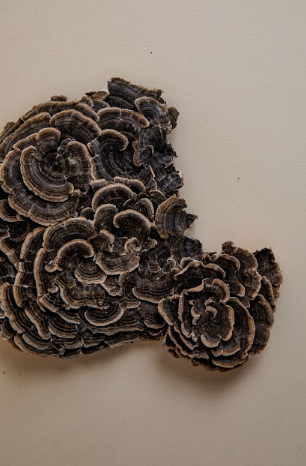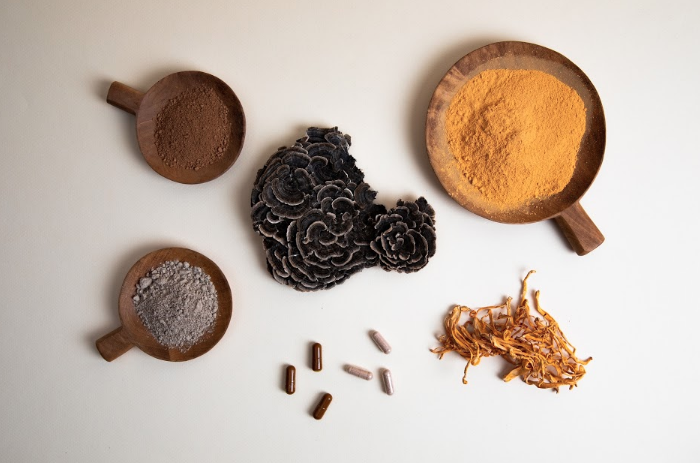According to Data Bridge Market Research, the psychedelic drugs market is projected to reach $6.85 billion by 2027 due, in part, to the rising prevalence of mental health disorders, and the growing acceptance of psychedelics as a form of treatment. But despite the growth, the industry still remains shrouded in mystery for those who are not researchers or in the pharmaceutical sector.
Optimi Health is looking to shed light on the industry. They are (quite literally) a homegrown, vertically integrated company that is positioning themselves as Canada’s first large-scale cultivator of natural, pharmaceutical-grade mushrooms. Their mission is to dispel the stigma surrounding psilocybin mushrooms by harnessing the power of science in order to help with everything from depression to PTSD.
Here, co-founder JJ Wilson (you may know him for building direct-to-consumer brands Ride Cycle Club and Kit and Ace) talks about his latest endeavour, misconceptions of the industry, and the biggest opportunities to be seized.


What is Optimi Health?
Optimi Health is essentially a medicinal mushroom operation at the forefront of the next generation of supplements. The long-term driver of the business is psilocybin, which can be broken down into three parts in our business. The first is production: we have two 10,000 square-foot production facilities in Princeton, BC. The first facility will be growing psilocybin and the second will be growing functional or medicinal mushrooms. There’s a lab division of the business that we’re working on in partnership with the University of Calgary and the Hotchkiss Brain Institute, and then there is the nutraceutical brand, which is an assortment of functional and medicinal mushroom supplements.
You’ve also entered a partnership with Numinus Wellness to conduct research on psychedelics. In terms of regulation and consumer perception, do you see any similarities or differences between the cannabis and psychedelic industries?
I’ve never liked comparing the rapidly-evolving market of psychedelics or psilocybin to cannabis. I think at the onset of the cannabis industry, there was always this understanding that recreational [cannabis] was no doubt going to be the route that the industry was going to take. There are incredible health benefits to psychedelics across the board, and I think it would be well-suited for the world to first take baby steps through a pharmaceutical approach prior to recreational use. It’s an extraordinarily more powerful drug [than cannabis] and if it’s not taken within a controlled setting, it can be significantly more dangerous. I think what the difference will be is the government will move significantly more cautiously.
What do you see as the biggest opportunity for Optimi Health?
The timing of Optimi was fairly specific in that today, licenses have been awarded to an assortment of therapeutic clinics that are testing end-of-life psychedelic treatments for patients who are dying of various diseases. The interesting thing is that there is no real control over where they’re getting their psilocybin, so it’s not necessarily a stable or consistent product. What I see as the biggest opportunity for Optimi, and why we’re positioning the business to be a critical player in the supply chain, is that there are all of these licenses being awarded for people to use psilocybin, but they’re using black market products. We want to optimize our design to take advantage of that supply chain requirement.


What are some of the hurdles that you’re facing as a business?
The biggest challenge is that there’s no real way of determining what the demand is going to be. Part of the contingency in our business model, however, is that we’ve introduced the nutraceutical line. The challenges in our clinical trials is that we’re focusing on natural formulations versus synthetic capsules. A lot of the work that’s being done by a lot of the players in the game has primarily focused on a synthetic compound. It’s easier to create and IP a synthetic compound. Where the business and my partners are positioning ourselves is a natural alternative that provides a similar outcome. And that comes with stability and consistency challenges.
What do you think are the biggest misconceptions about psychedelics and psilocybin?
Generally speaking, I don’t hear a lot of concerns. I hear a lot of interest and excitement about when it’s going to be legalized, if it’s going to be recreational, and how they can get some. I think the biggest misconception that people have is what their understanding of psychedelics is. From a consumer’s point of view, it’s something that’s going to make you trip out and see things, or make you feel like you’re trapped for nine hours in some experience that you don’t want to be in. That’s just not true at all. It can occur, but it really depends on how much you take and what you’re taking.








